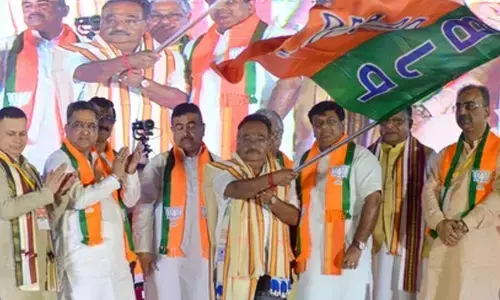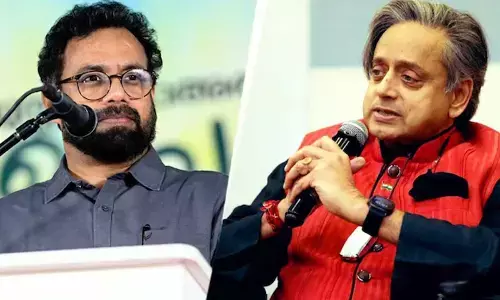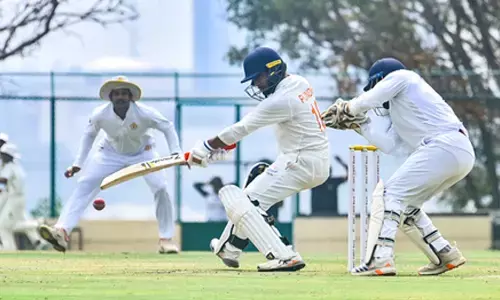The Comptroller and Auditor General of India

Comptroller and Auditor General of India (CAG) is the supreme body for audit and accounts in India. The Constitution of India, under Article 148, provides for an independent office for the CAG. He is the guardian of the public purse and controls the entire financial system of the country at both levels i.e.
Comptroller and Auditor General of India (CAG) is the supreme body for audit and accounts in India. The Constitution of India, under Article 148, provides for an independent office for the CAG. He is the guardian of the public purse and controls the entire financial system of the country at both levels i.e. state and central. His duty is to uphold the Constitution of India and laws of Parliament in the field of financial administration.
.jpg) Appointment:
Appointment:
The CAG is appointed by the President of India by a warrant under his hand and seal. The CAG, before taking over his office, makes and subscribes before the President an oath and affirmation. He holds office for a period of six years or up to age of 65 years, whichever is earlier. He can resign anytime from his office addressing the resignation letter to the President. He can also be removed by the President through a resolution passed to the effect by both the houses of Parliament with special majority, either on ground of proved misbehaviour or incapacity.
Independence:
CAG should be independent to perform its functions. Acknowledging this fact, the Constitution has made following provisions to safeguard the independence of the CAG:
- CAG is provided with a security of tenure. He can be removed by the President only in accordance with the procedure mentioned in the Constitution. Thus he does not hold the office till the pleasure of President prevails though he is appointed by him.
- He is not eligible for further office, either under the Government of India or of any state, after completing his term as a CAG.
- His salary and other allowances are decided by the Parliament and are charged from Consolidated Fund of India .
- Neither his salary nor his rights of leave of absence, pension or age of retirement can be altered to his disadvantage after his appointment.
- The conditions of the service and administrative powers of CAG are determined by President after consulting CAG.
Powers:
- Under the Comptroller and Auditor General's
- (Duties, Powers and Conditions of Service) Act 1971, he is empowered to :
- Make rules for carrying out the provisions relating to the maintenance of accounts.
- Make regulations for carrying out the provisions relating to the scope and extent of audit, including laying down for the guidance of the Government departments, the general principles of Government accounting and the broad principles in regard to audit of receipts and expenditure.
- Requisition all records of the auditee departments/organisations.
- Access the computer systems of the auditees and to download and use electronic data either in site or off site.
- Review the development of computer systems of auditees and suggest/enforce controls
- Give appointment of external auditors engaged by the auditees for meeting any statutory requirements but only with reference to Government companies.
- Supervise and regulate external auditors' work under the Indian Companies Act.
- Dispense with, when circumstances so warrant, any part of detailed audit of any accounts or class of transactions and to apply such limited check in relation to such accounts or transactions as he may determine.
Functions:
- While fulfilling his constitutional obligations, the Comptroller and Auditor General of India conducts the following types of audit:
- Financial Audit
- Compliance Audit
- Performance Audit
- EDP Audit.
Further, the Comptroller and Auditor General of India undertakes Special Audit at the request of the Government. The Comptroller and Auditor General is required to follow specific standards, practices and guidelines in conducting, auditing and reporting. He can engage consultants and/or obtain professional services in conducting audit. He can also consult and collaborate with other countries/SAIs and International organisations on matters relating to audit.
Apart from the certificates of the Appropriation and Finance accounts of the Union and of various States and submission of separate Audit reports on Statutory Corporations and other autonomous bodies for which he is the sole auditor, the Comptroller and Auditor General of India brings out a large number of reports relating to the Union Government and the State Governments. These reports incorporate important audit findings and performance reviews of systems, projects and programmes and comprehensive appraisals of public enterprises and other bodies and authorities.
He also reports on acts that infringe upon State economic interests like mass embezzlement of State assets, serious losses and wastes. These reports are laid before the Parliament and State Legislatures concerned, every year. He can share his audit reports with public and media only after laying them in the Parliament and the State Legislatures.
Some of these reports are selected by the Public Accounts Committee of the Parliament and State Legislatures for detailed discussions and recommendations. The Comptroller and Auditor General of India assists the Public Accounts Committee by vetting the Action Taken Notes on these selected reports.









